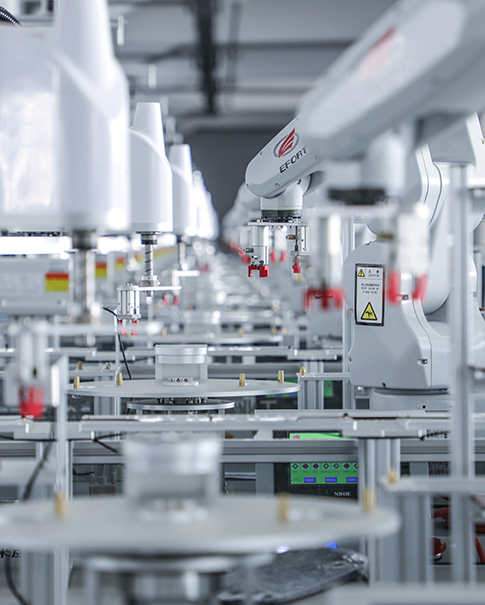In the field of material preparation, the efficiency and precision of sintering processes have always been industry pain points. Thermal Technology's newly developed Large Direct Current Sintering (DCS) system has successfully addressed the issues of high energy consumption and poor temperature uniformity in traditional AC sintering equipment through groundbreaking DC power supply technology and intelligent temperature control algorithms. The system utilizes a pure DC electric field for driving, enabling more efficient ion migration during the sintering process. Coupled with multi-zone independent temperature control modules, the temperature control accuracy can reach ±1℃, an improvement of over 50% compared to traditional equipment. This technological innovation not only shortens the sintering cycle but also fundamentally enhances the uniformity of the material's microstructure, providing an ideal platform for the research and development of high-performance new materials.
Due to AC resistance losses and magnetic field interference, the energy utilization rate of traditional sintering equipment is generally below 60%. The DCS system directly heats through a DC power supply, eliminating energy losses caused by alternating magnetic fields and increasing the energy utilization rate to over 85%. The energy consumption per furnace is reduced by 40% compared to traditional equipment. For enterprises engaged in large-scale production, this can save millions of kilowatt-hours of electricity consumption annually, significantly reducing carbon emissions and production costs.
Benefiting from the optimized furnace structure design and intelligent thermal field distribution algorithm, the single processing capacity of the DCS system has increased by 30% compared to equipment of the same specification. Its unique multi-level material placement technology maximizes the use of furnace space without affecting the sintering quality. The actual measurement data from a new energy battery material manufacturer shows that after using the DCS system, the sintering capacity of cathode materials has increased from 8 tons per day to 11 tons, achieving a leap in production efficiency.
In the preparation of high-end materials such as semiconductor ceramics and nanocrystalline alloys, minor differences in the sintering process can lead to significant changes in performance. With its precise temperature control and stable DC electric field environment, the DCS system enhances the material's density by 5% - 8% and improves the uniformity of grain size
Several leading companies across various industries have already witnessed remarkable results with the DCS system. A renowned aerospace component manufacturer used the DCS system to sinter titanium alloy parts. The outcome was parts with superior mechanical properties, including a 20% increase in tensile strength and a 15% improvement in fatigue resistance, compared to those produced by conventional methods. Another case involves a cutting-edge electronics firm. They applied the DCS system in the production of ceramic substrates for high-power chips. The resulting substrates showed a 30% reduction in thermal resistance, greatly enhancing the heat dissipation efficiency of the chips.
The advent of the DCS system is reshaping the competitive landscape of the material manufacturing industry. Smaller companies now have the opportunity to level up their production capabilities by adopting this advanced technology, which was previously out of reach due to the limitations of traditional equipment. Meanwhile, larger corporations are leveraging the DCS system to solidify their leading positions, enabling them to meet the ever-increasing demand for high-quality materials more effectively. Additionally, the DCS system is driving innovation in related fields, inspiring the development of new material formulations and processing techniques.
As technology continues to evolve, the DCS system is expected to undergo further enhancements. Future iterations may focus on integrating artificial intelligence for more predictive and adaptive control of the sintering process. This could lead to even more optimized material properties and reduced production time. Moreover, with the global push towards sustainable manufacturing, the DCS system’s energy-efficient nature positions it as a key technology for the future. It is likely to play an increasingly important role not only in existing industries but also in emerging sectors such as 3D-printed metal parts and advanced composite materials.
Email us
Reply within one working dayVisit us
32D Guomao Building, No.388, Hubin South Road, Siming DistrictDisclaimer : Salesplc sells new and surplus products and develops channels for purchasing such products. This website has not been approved or recognized by any of the listed manufacturers or trademarks. Salesplc is not an authorized distributor, dealer, or representative of the products displayed on this website. All product names, trademarks, brands, and logos used on this website are the property of their respective owners. The description, explanation, or sale of products with these names, trademarks, brands, and logos is for identification purposes only and is not intended to indicate any association with or authorization from any rights holder.
Copyright @2024 SalesPlc Limited. Sitemap
/ Blog
/ XML
/ Terms And Conditions
/ Privacy Policy
 Network Supported
Network Supported
